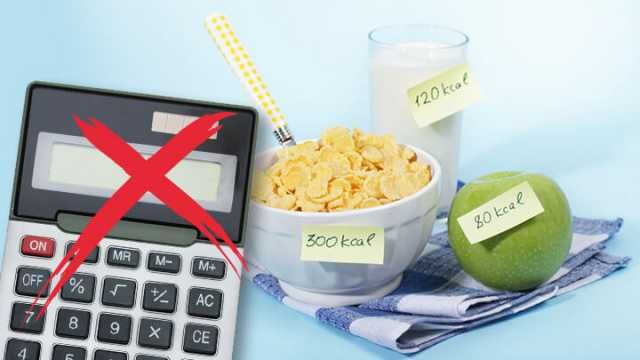
It’s that time of year again when we all start thinking about bathing suits and sunshine filled days at the beach. Along with our urge to run into the welcoming sunshine comes thoughts on the best way to do a little “spring cleaning” for our bodies, and lose the extra pounds we might be carrying over from the winter. Amidst our desire to look and feel lighter we’re often at odds with how best to achieve our weight loss goal.
The standard methodology of today’s dieting legion seems to be calorie restriction, excessive exercise and a focus on fad food trends or supplements. There are some complications that arise from this mentality. As a result, many people find themselves in a precarious position. While making the decision to take control over your diet, and thereby your health, is a positive one, it is vital to make sure it’s centered on your overall health and wellness. The following are three of the top reasons why calorie restriction can be less effective than other methods when it comes to losing weight.
1. It increases the stigma surrounding food

When we put such an emphasis on the number of calories we consume, we reduce the beauty and positive benefits of eating, and reduce it to a matter of refueling. A benefit that comes tangentially to paying attention to caloric content is a more mindful focus on what we put into our mouths, but it comes at a cost. If you were to look at all calories as being equal, you would completely ignore the subjective and wonderful experience that comes with eating.
We eat for more reasons than caloric fuel, and a reduction of food to such a basic model changes how we perceive and enjoy our meals. Take a look at what you eat when you are inspired by different situations. The meals you enjoy with friends and family and the mutual bond shared over a holiday feast, or how you eat to celebrate, or what you eat and feel after a good workout. Food is more than a fuel and brings more to our lives than just energy. To place foods, especially if we truly love them, in a negative place mentally creates a schism between what our bodies ask us for and what we give it.
One result of this type of diet is that food becomes a stressor. It is very difficult to receive true nourishment from food if it is thrust into a limited and skewed light. Enjoy your food with thoughtful and reflective energy, and often you will feel more satisfied and eat less as a result, especially if you give your body what it truly craves.
2. It can put your body into “famine” mode
When our body isn’t given enough of the nutrients it needs, it will often enter a mode similar to those suffering from real starvation. Our minds may know that any food we desire is immediately available, but our bodies are hardwired to behave in a way that ensures we survive. We need fats, carbs and proteins, and to deprive ourselves of sufficient amounts because they are calorie heavy is self-sabotage. For example, if we don’t give ourselves enough fats, we may become inflamed. Also, if we don’t get a sufficient intake of glucose, our bodies are forced to produce it from internal sources and adding more tasks to an already complex system.
If we pair a lack of nutrients with an intense exercise regimen, we can doubly damage our efforts. When we exercise, our need for glucose multiplies, and if we don’t have it available, we start to convert our protein (muscle) for fuel (not our fat stores). So aside from damaging the muscles from exercise, we are breaking them down further. And if we don’t supply our bodies with enough high-quality protein, we are all but unable to heal from our exercise. So, often times people will lose weight in this situation, but it will be the important lean muscle they are trying to gain.
Also, when we don’t listen to our body’s signals, like hunger or cravings, we start a chain reaction which causes our bodies to store every possible calorie. By giving our bodies a steady supply of delicious, satisfying and effective foods and adjusting our intake based on our activities, we can keep our appetites, blood sugar and waistlines in control.
3. Symptomatic of yo-yo diets

Looking at the potential these calorie restrictive diets have to potentially reduce our muscle mass, change our relationship with food and even cause stored fat to increase, it becomes easier to see why they are ineffective in the long term. Healthy weight loss is possible and it is sustainable. The calorie focused approach is not the best way to achieve your weight goals though.
A major side-effect of these diets is overall weight gain. Our bodies will begin to crave foods more strongly and cause us to believe we have a willpower issue, when we are really suffering from continually depriving our bodies of what they want. If you continue past the craving hurdle, often times the increased stress in our body will cause us to have a weakened immune system and may allow us to get ill, thereby forcing us into a new paradigm about what we want to eat.
After we leave the mindset of calorie restriction, we are set upon by our cravings and the guilt and self-justification that accompany them. We are all but consumed by our body’s overwhelming desire for the foods we have deprived ourselves of and tend to eat with abandon. The simple notion of “not being allowed” to eat something gives it the forbidden fruit status in our minds, and makes it a guilty pleasure. Being free to eat these things again is met with a sigh of relief that is soon followed by unabashed consumption of our long missed foods.
A much better approach to weight loss is to take steps to understand what foods your body responds best to and to keep a log of how you feel when you eat them. We all have different responses to different foods, and knowing yours is a great step to use food for healthy weight loss. By journaling your meals, and your subsequent feelings, you can track the stimuli that accompany your cravings and their effect on your body. It has been shown that logging what you eat can help lose weight on its own. Also, by utilizing tools like scheduling your meals and exercising a little bit every day, you can look your best in no time!
Remember to be happy when you eat. Take your time. Share your meals with people you love. Above all else: love what you eat!
— Susan Patterson

